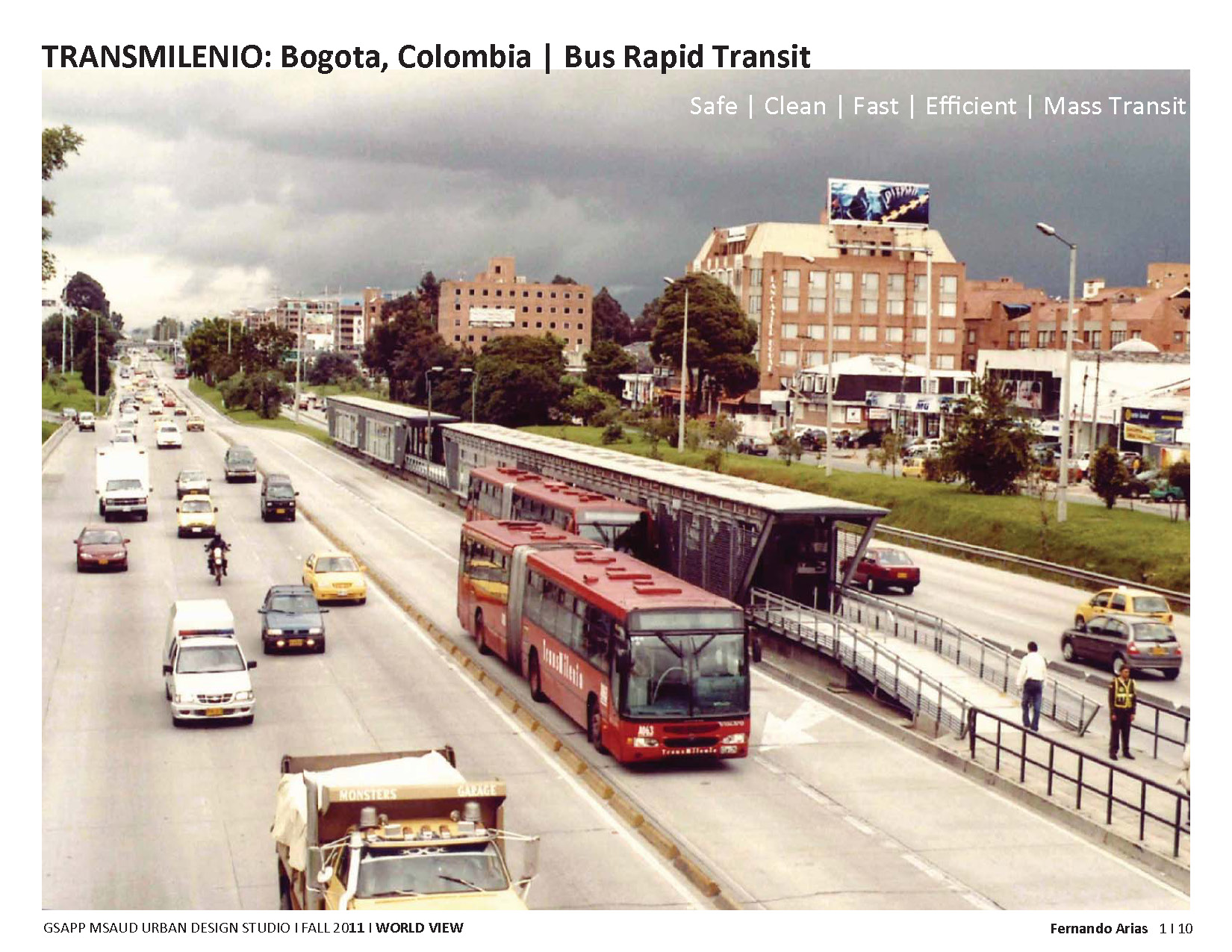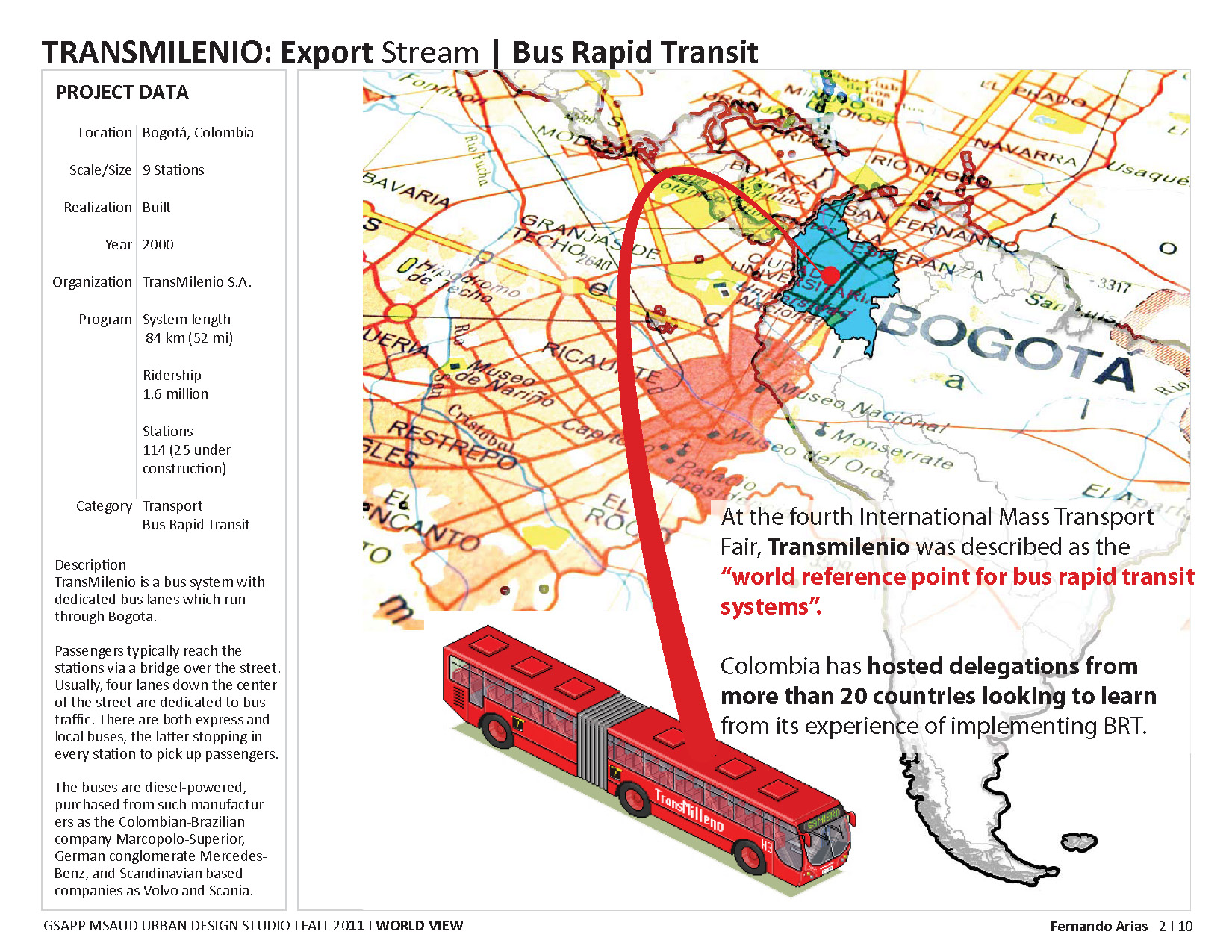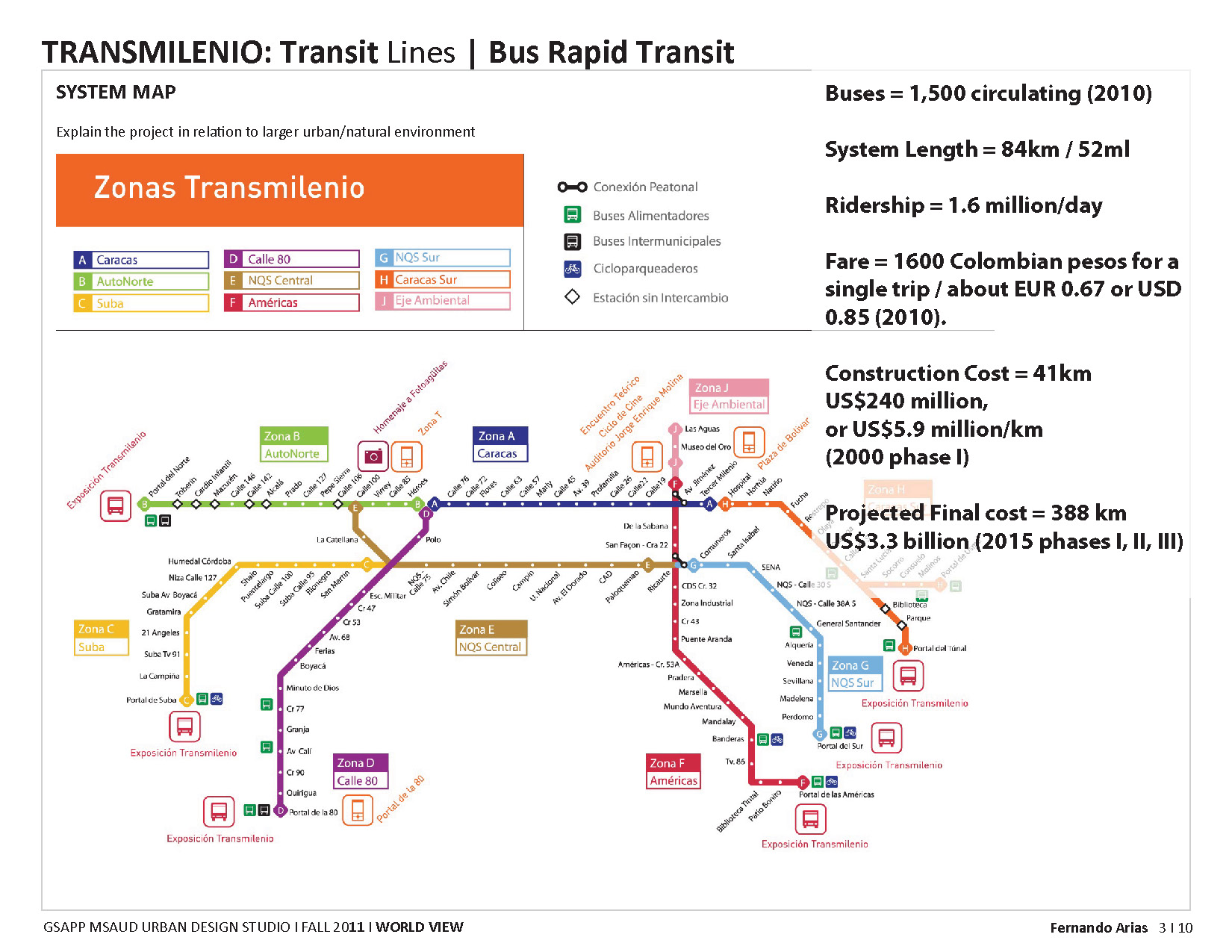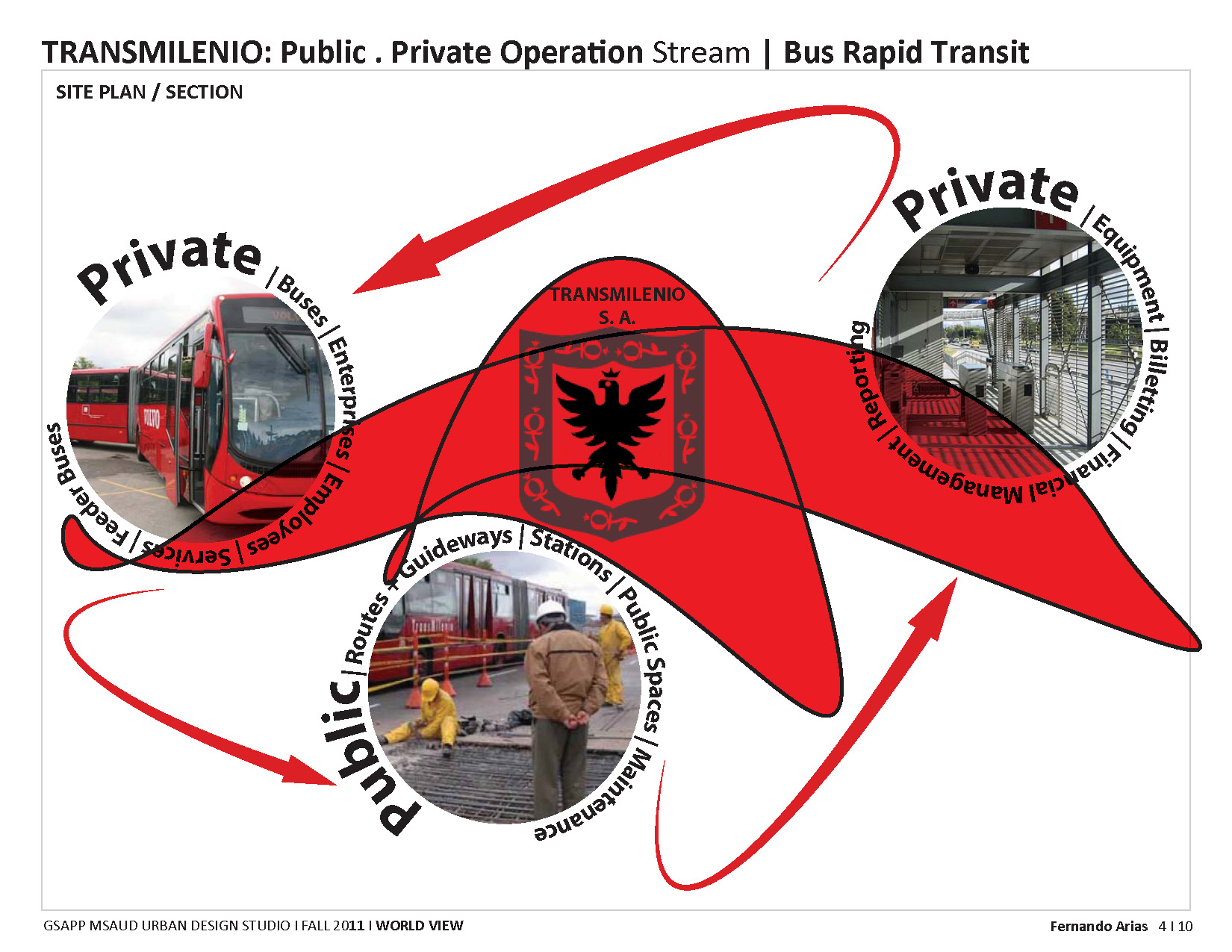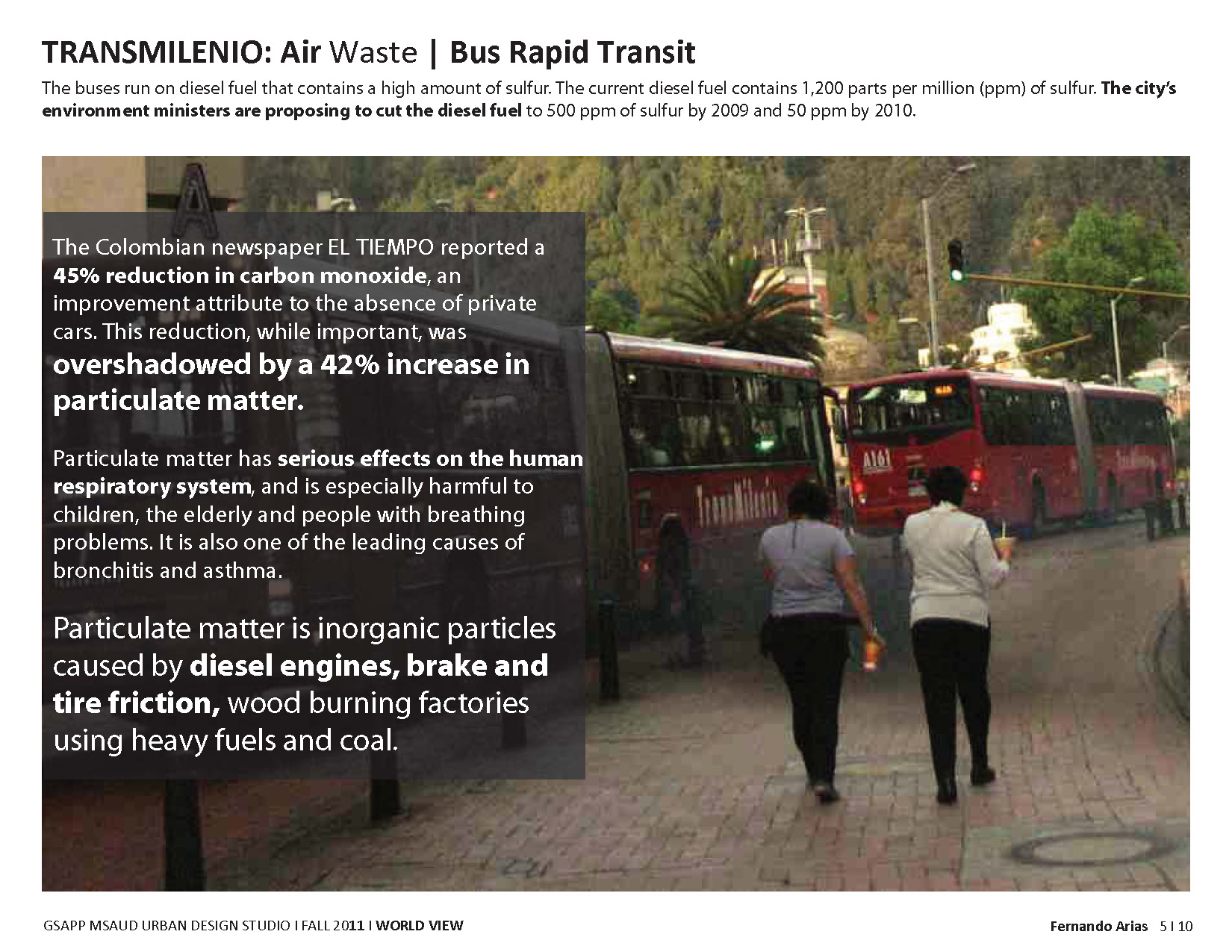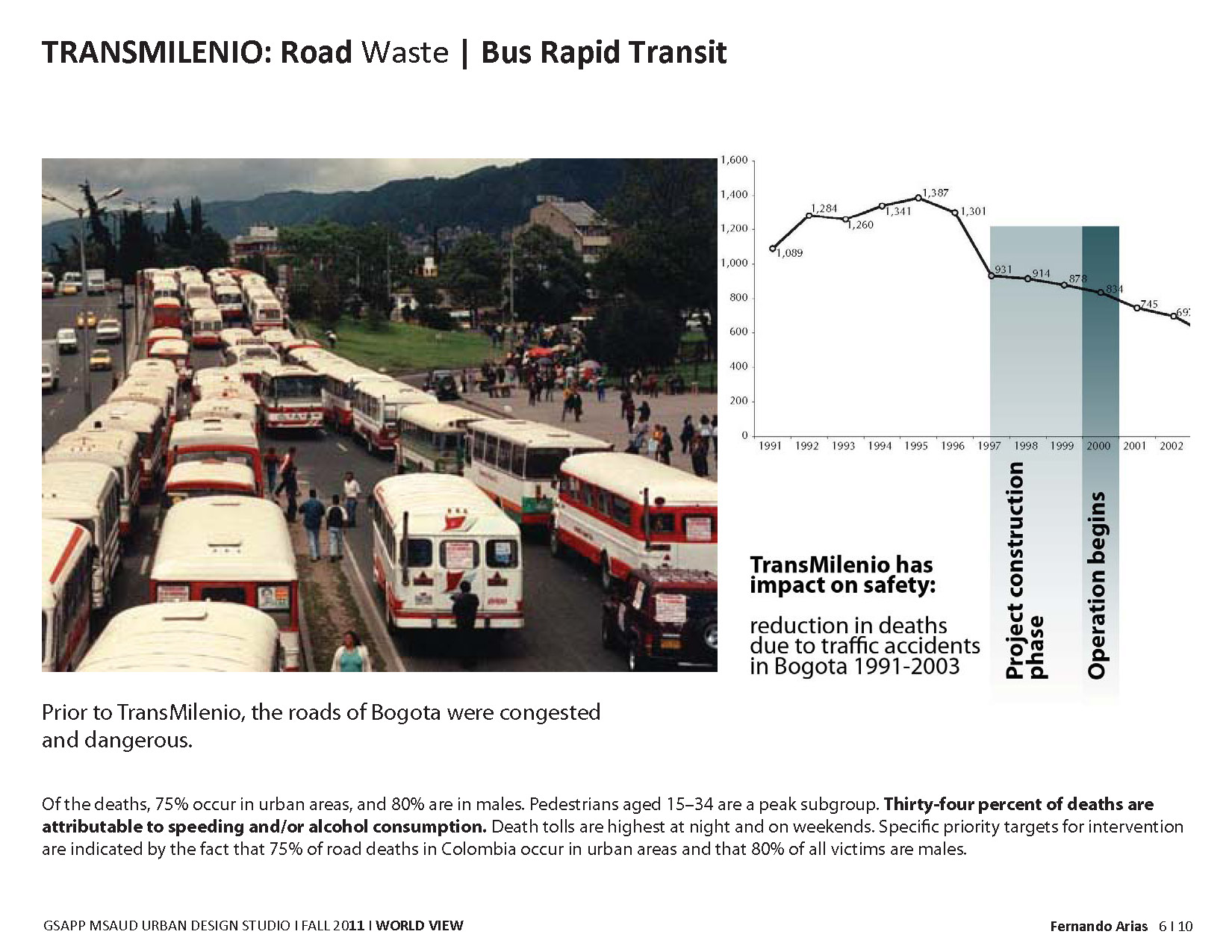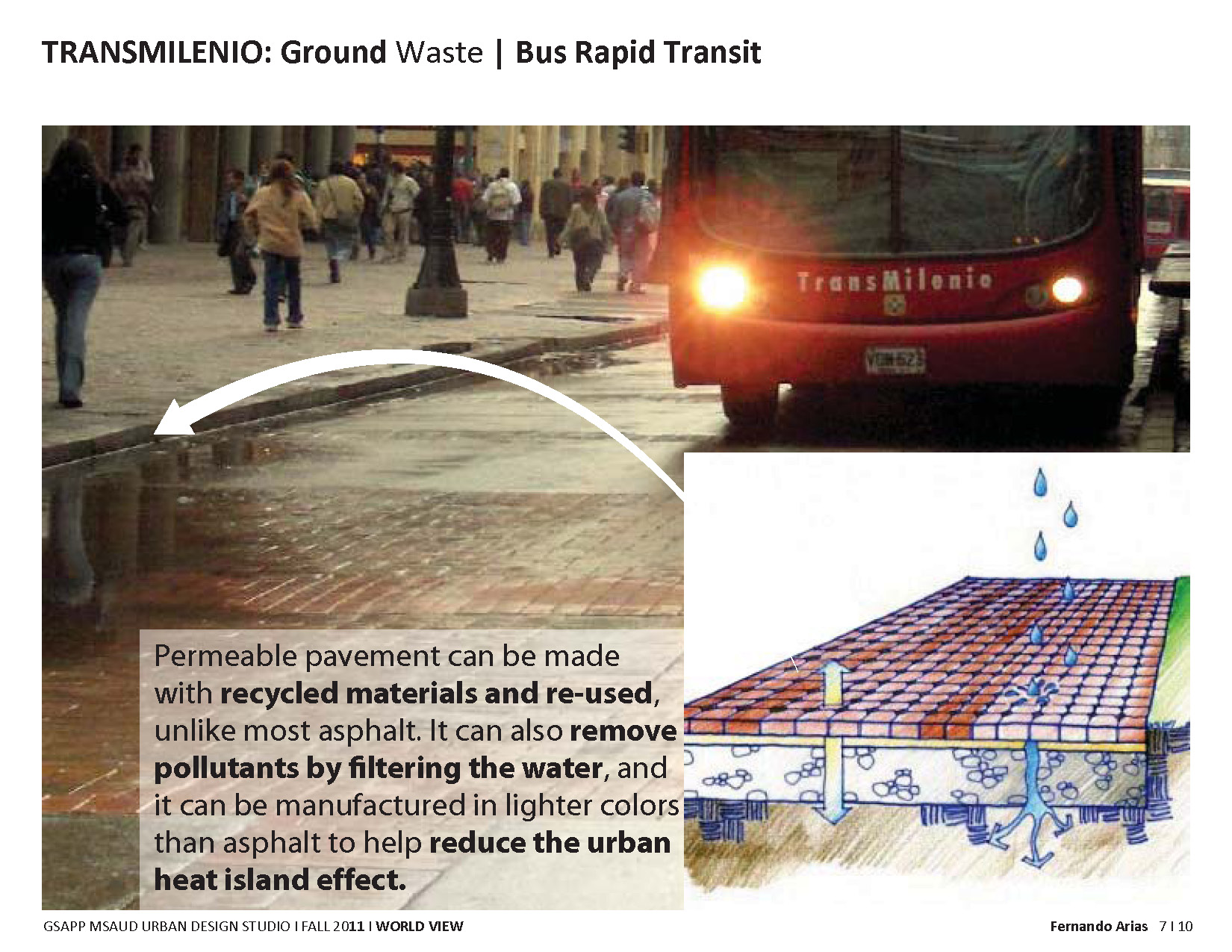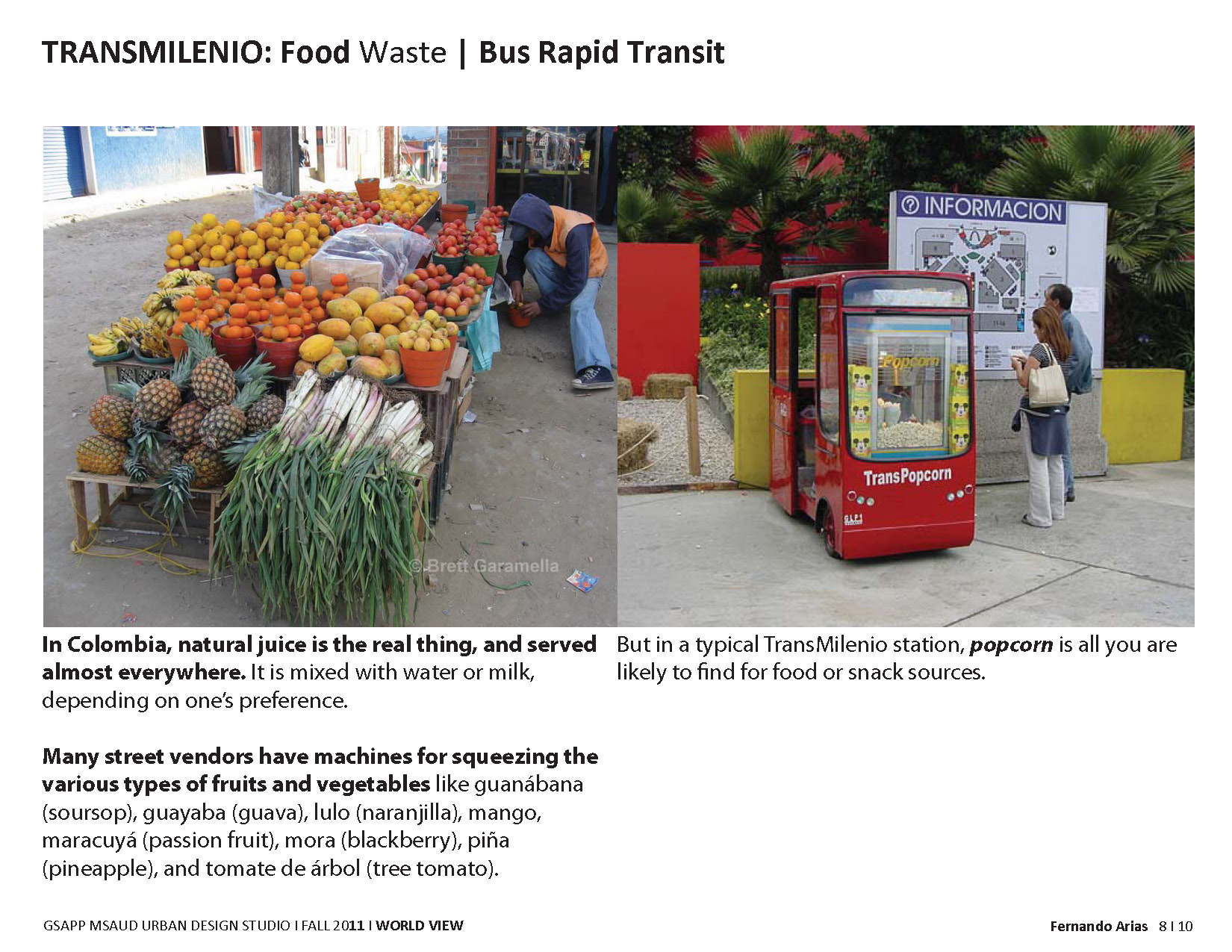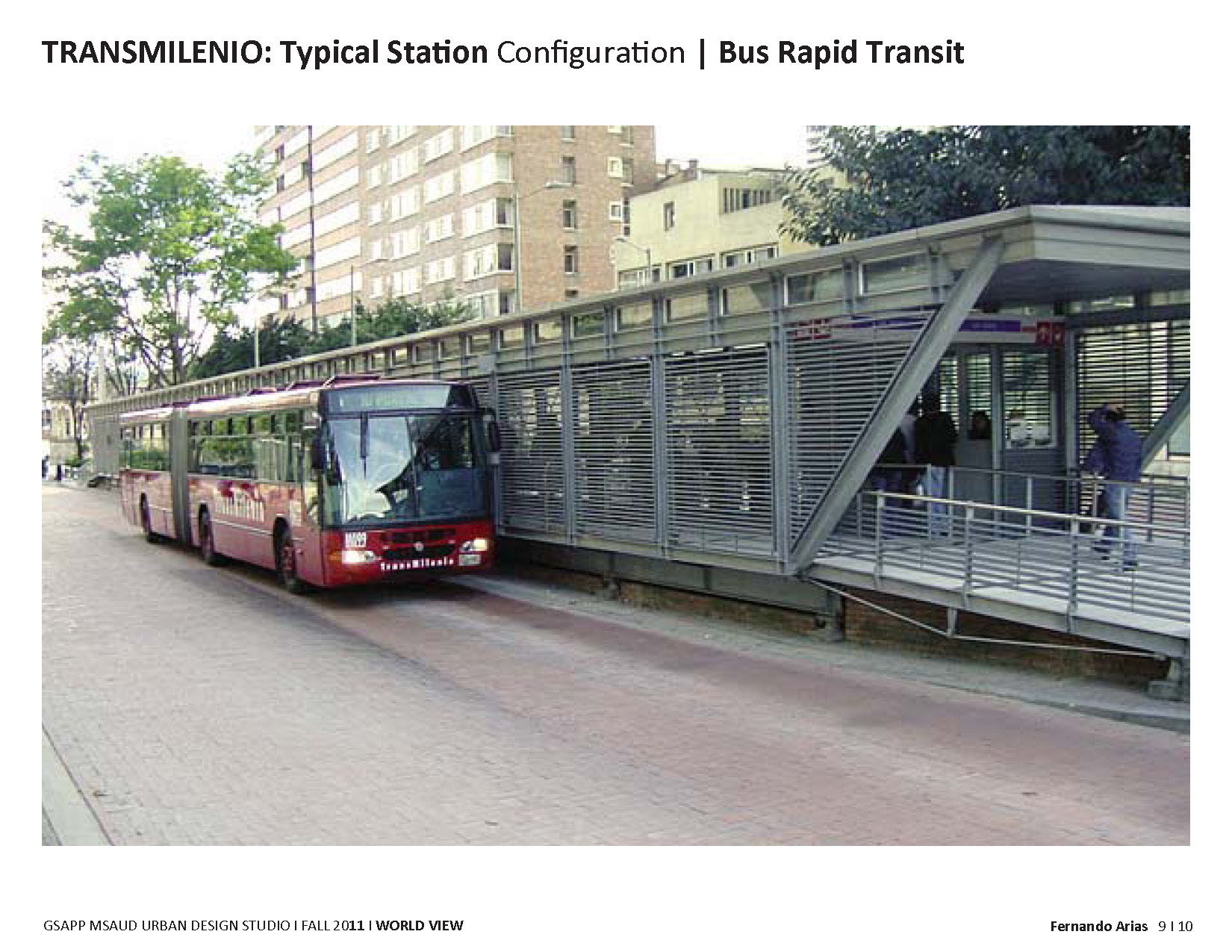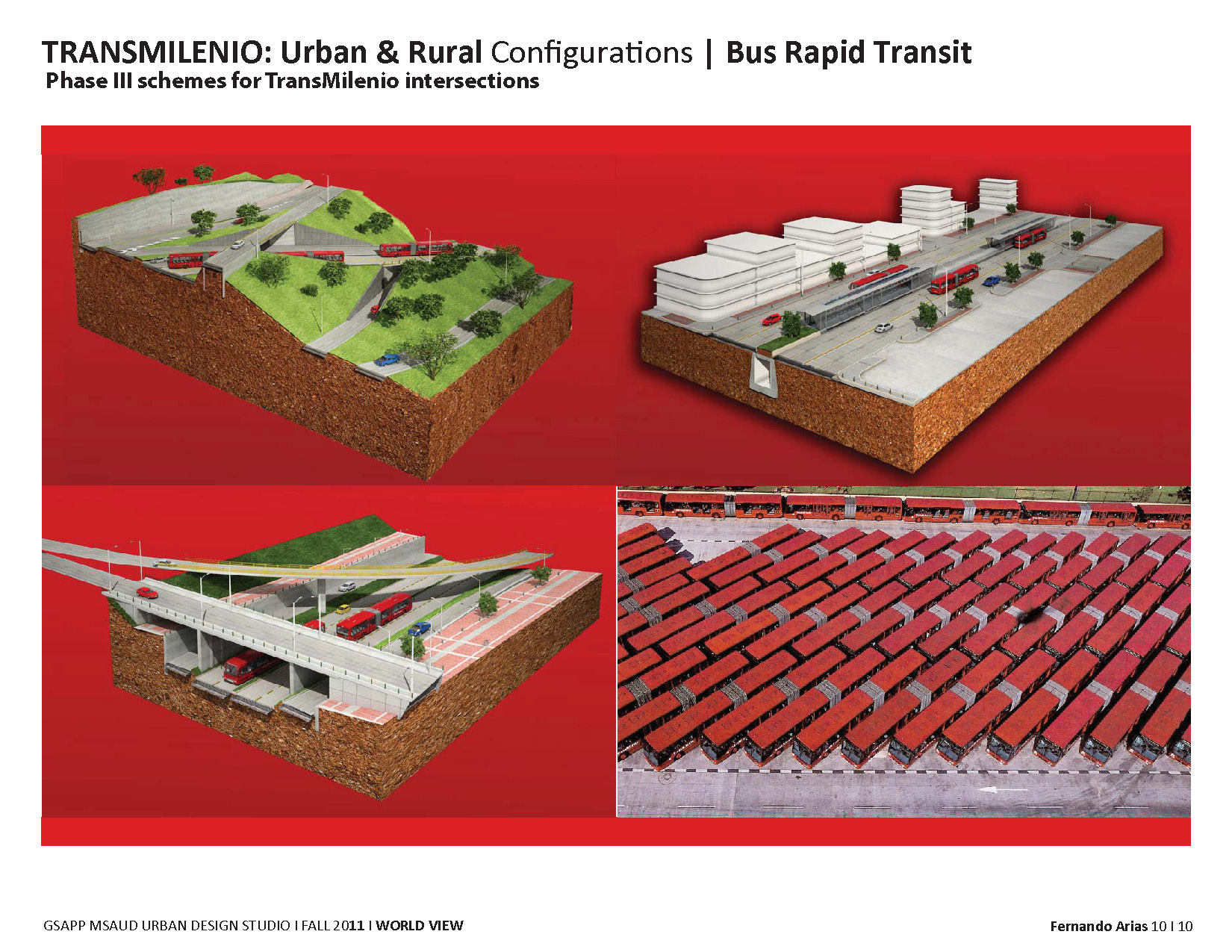TRANSMILENIO: Bogota, Colombia | Bus Rapid Transit
/TransMilenio is a bus system with dedicated bus lanes which run through Bogota. Passengers typically reach the stations via a bridge over the street. Usually, four lanes down the center of the street are dedicated to bus traffic. There are both express and local buses, the latter stopping in every station to pick up passengers. The buses are diesel-powered, purchased from such manufacturers as the Colombian-Brazilian company Marcopolo-Superior, German conglomerate Mercedes-Benz, and Scandinavian based companies as Volvo and Scania.
However, the buses run on diesel fuel that contains a high amount of sulfur. The current diesel fuel contains 1,200 parts per million (ppm) of sulfur. The city’s environment ministers are proposing to cut the diesel fuel to 500 ppm of sulfur by 2009 and 50 ppm by 2010.
The Colombian newspaper EL TIEMPO reported a 45% reduction in carbon monoxide, an improvement attribute to the absence of private cars. This reduction, while important, was overshadowed by a 42% increase in particulate matter. Particulate matter has serious effects on the human respiratory system, and is especially harmful to children, the elderly and people with breathing problems. It is also one of the leading causes of bronchitis and asthma.
Particulate matter is inorganic particles caused by diesel engines, brake and tire friction, wood burning factories using heavy fuels and coal. Of the deaths, 75% occur in urban areas, and 80% are in males. Pedestrians aged 15–34 are a peak subgroup. Thirty-four percent of deaths are attributable to speeding and/or alcohol consumption. Death tolls are highest at night and on weekends. Specific priority targets for intervention are indicated by the fact that 75% of road deaths in Colombia occur in urban areas and that 80% of all victims are males.
